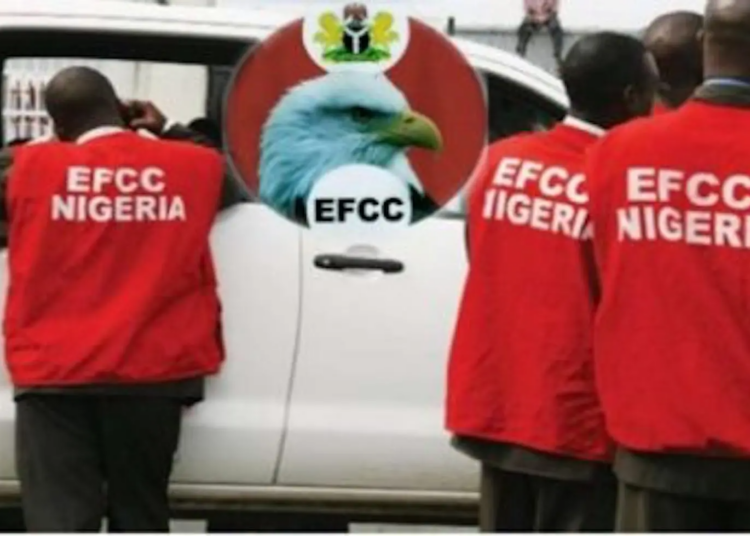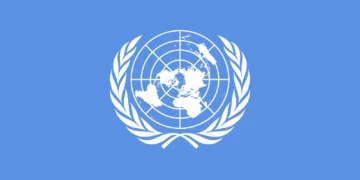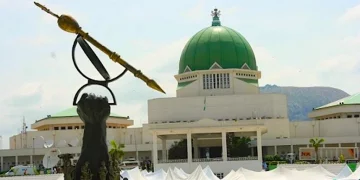The dismissal of 27 officers from the Economic and Financial Crimes Commission (EFCC) for fraud and misconduct presents a deeply troubling paradox that cuts to the heart of Nigeria’s anti-corruption efforts.
When those entrusted with fighting corruption become perpetrators themselves, it raises fundamental questions about institutional integrity and the challenges of maintaining ethical standards in our anti-graft agencies.
This development, while disturbing, actually sends two contrasting messages. On one hand, it reveals the extent to which corruption has penetrated even our premier anti-corruption agency, suggesting that no institution is immune from this societal cancer.
On the other hand, the decisive action taken against these officers demonstrates a refreshing commitment to internal accountability and zero tolerance for misconduct.
The EFCC’s willingness to publicly acknowledge and act against corruption within its ranks deserves commendation.
The revelation becomes even more concerning when viewed alongside reports of criminal syndicates impersonating EFCC officials to extort money from investigation targets.
The recent arrest of individuals attempting to extract $1 million from a former Nigerian Ports Authority (NPA) managing director by claiming to represent the EFCC chairman exemplifies how deeply corruption has metastasized in our society.
These criminals exploit the very fear and uncertainty that surrounds EFCC investigations to perpetrate their fraudulent schemes.
This situation presents several critical challenges for Nigeria’s anti-corruption efforts. First, it undermines public confidence in the EFCC’s integrity and effectiveness.
When anti-corruption officers themselves engage in corrupt practices, it feeds into the cynical narrative that corruption is simply endemic to Nigerian institutions.
This perception can lead to public apathy and resignation, making the fight against corruption even more difficult.
Second, corrupt officers within the EFCC pose a direct threat to ongoing investigations and prosecutions. Their presence compromises operational security, endangers witnesses, and potentially undermines cases against genuine corruption suspects.
How many high-profile cases have been deliberately botched by corrupt insiders? How many legitimate investigations have been compromised by officers working in concert with suspects?
The current EFCC leadership under Ola Olukoyede appears to recognise these challenges. The commission’s commitment to investigating all allegations, including claims of a $400,000 fraud involving a sectional head, suggests a laudable determination to confront internal corruption head-on.
This approach marks a departure from the historical tendency of Nigerian institutions to sweep misconduct under the carpet.
However, dismissing corrupt officers, while necessary, is only part of the solution. The EFCC must undertake a comprehensive review of its recruitment, training, and oversight mechanisms. How did these 27 officers pass the initial screening? What safeguards failed to detect their misconduct earlier?
The commission needs to strengthen its internal control systems to prevent, detect, and respond to corruption more effectively.
Moreover, the EFCC should consider implementing additional measures to protect its integrity. These could include regular lifestyle audits for officers, enhanced vetting procedures, rotation of assignments to prevent compromising relationships with suspects, and stronger whistleblower protections for staff who report misconduct.
The commission must also address the broader ecosystem that enables corruption within its ranks. This includes reviewing officer compensation and benefits to reduce vulnerability to bribes, strengthening internal affairs units, and developing more sophisticated methods to monitor officer conduct and detect unusual patterns that might indicate corruption.
The EFCC’s experience holds lessons for other Nigerian institutions. It demonstrates that fighting corruption requires constant vigilance, even within anti-corruption agencies themselves.
It also shows that institutional reform is possible when leadership demonstrates the political will to confront internal corruption decisively.
As Nigeria continues its struggle against corruption, the EFCC must maintain this momentum of internal cleansing. The dismissal of corrupt officers should be followed by criminal prosecution where warranted, sending a clear message that there are consequences for betraying public trust.
The commission must also enhance its public communication to distinguish legitimate investigations from criminal impersonators who exploit its name.
The road ahead remains challenging, but the EFCC’s recent actions provide a glimmer of hope. By cleaning its own house, the commission strengthens its moral authority to fight corruption elsewhere.
However, sustained success will require ongoing commitment to institutional integrity, enhanced preventive measures, and continued public support for anti-corruption efforts.
The battle against corruption must begin within the institutions charged with fighting it. Only then can we hope to make meaningful progress in our national anti-corruption efforts.
The EFCC’s current leadership appears to understand this principle. Now they must ensure that this internal purge becomes part of a sustained reform process rather than a one-time event.





